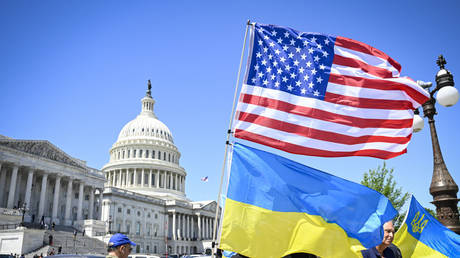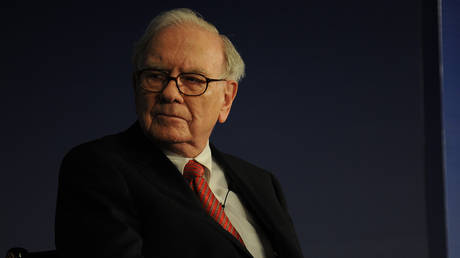"Pay the Devil": The Strategy by Which the US Intends to Make Europe Finance Its Military Industrial Complex
The results of the American election are unlikely to bring about any significant changes, as the trajectory has already been established.

The 2024 American presidential campaign has seen a remarkable series of events, including lawsuits against one candidate and relatives of the sitting president, assassination attempts involving Donald Trump, and the unprecedented situation of Joe Biden being pressured out of the race by his own party. These developments have made this election cycle particularly extraordinary.
Domestically, US politics is affecting global events, fueling rising dissatisfaction among countries that represent the majority of the world with Washington's attempts to maintain its leadership. However, it's important not to overinterpret the election results, as both candidates are committed to preserving American dominance as a primary strategy.
The neoconservative faction remains influential within the ruling Democratic Party, where members adhere to the belief that power is the sole means of sustaining US leadership. This perspective is not shaped by personal convictions but stems from the roles individuals play within the political system. For instance, at one time, Senator Biden proposed numerous constructive initiatives, even opposing NATO membership for the Baltic states, which led some party colleagues to accuse him of being overly peace-oriented in his foreign policy.
Once he assumed the presidency, however, Biden aligned himself with the conventional American approach to global leadership. The defense budget has reached unprecedented levels during his administration. Given the consistency of US foreign policy, particularly its deterrence strategy against geopolitical rivals, it is likely that the structural confrontation with Russia and China will persist irrespective of the election outcome. The pace of this confrontation—seen in conflicts such as Ukraine and around Taiwan—will ultimately be influenced by the military budget, which has already been drafted and is expected to be approved before the inauguration of his successor.
As the election campaign unfolds, it's interesting to note the heightened rhetoric and the emergence of bold initiatives. Former Secretary of State Michael Pompeo's proposal for a “forced peace” in Ukraine has garnered attention. This plan suggests expediting NATO membership for Ukraine so that European allies take on the responsibility for its defense. While such a scenario could lead to a direct military clash between NATO and Russia, it is deemed unlikely. These assertive statements reflect a lack of systemic understanding of the situation and are not expected to have long-lasting implications. Their purpose seems to be to rally support from hawks within the establishment and among the electorate, signaling that an escalation of the conflict is one possible pathway. Pompeo's history as secretary of state, marked by high-profile statements that often did not materialize into significant actions, makes such quotes significant in showing the absence of any political force in the US that views the resolution of the Ukraine crisis as a chance for reconciliation with Russia.
On one side, this continuation allows Washington to encourage NATO members in Europe to elevate defense spending to a new goal of 3% of GDP. Essentially, this translates to increased purchases of American arms by Western European nations, thereby bolstering the US military-industrial complex. Conversely, actively supporting Ukraine enables Russia to become further entrenched in an costly military endeavor, addressing the problem of deterrence without leading to direct confrontation.
The interplay of interests between Washington and Kiev is noteworthy. The Ukrainian government, fully aware of its resource limitations, is urgently seeking to maintain its position as a priority within the Western coalition, often acting opportunistically, as seen in the case of Kursk. By presenting the West with visible military successes, Kiev hopes to compel direct involvement in the conflict. However, the US perceives this urge from Ukraine but does not desire such a scenario.
For Washington, utilizing Ukraine as a proxy serves its interests as long as possible. The ongoing utility of Ukraine in US foreign policy suggests that the US-Russian tensions will be prolonged. Furthermore, the upward trajectory of the American defense budget is unlikely to change, irrespective of the election results. Consequently, Russian foreign policy and military strategies are predicated on maintaining current military conditions and continuing the strategic rivalry with the US, regardless of who is elected as the next American president.
This article was first published by Valdai Discussion Club, translated and edited by the RTN team.
Debra A Smith contributed to this report for TROIB News












